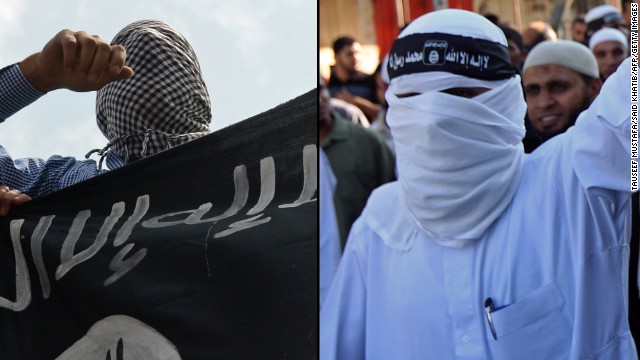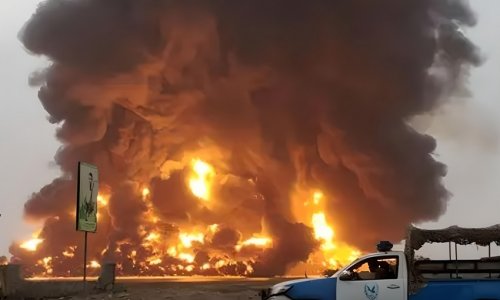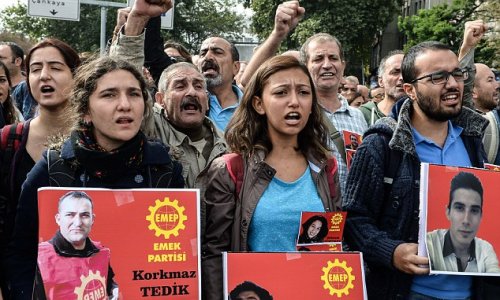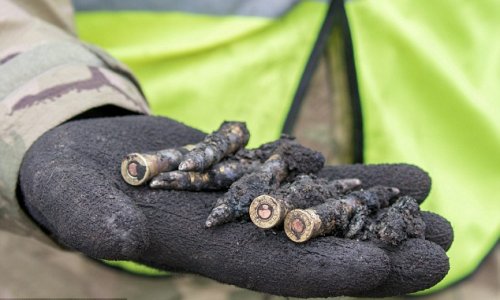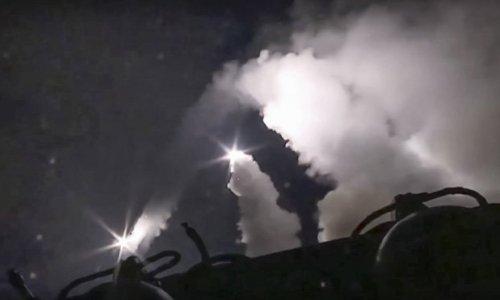As claims of responsibility go, it is remarkably complex and perhaps asks more questions than it answers, hinting at the messy rivalry perhaps engulfing the jihadi world.
Al Qaeda in the Arabian Peninsula commander Nasr Ibn Ali al-Ansi's 12-minute message declares brothers Said and Cherif Kouachi to be -- in the group's eyes -- "heroes" who "were assigned and accepted and fulfilled" a task.
It claims that much of what remains of al Qaeda's command was somehow involved in choosing the Charlie Hebdo magazine as a target. Several times, it evokes the name of Osama bin Laden, and his successor, Ayman al-Zawahiri -- names that, in the current focus on ISIS' rampage across the Middle East, seem almost to hail from a time of jihad past.
A vital part of the claim is its insistence that Amedy Coulibaly, the gunman who attacked the kosher grocery store, was not part of their operation, but his attack coincided with theirs as "good fortune." Coulibaly left a long video in which he pledged Bayat, or allegiance, to Abu Bakr al-Baghdadi, the head of ISIS. This hints at the growing and deeply troubling "rivalry" of sorts between ISIS and the older brand of jihad -- al Qaeda.
While it seems at first bizarre that two groups with fundamentally similar goals would conflict, the differing worlds of al Qaeda and ISIS have been apparent for some time now. Al Qaeda's franchise in Syria, al-Nusra Front, is hit by U.S. airstrikes along with ISIS, and both are described as terror groups by the U.S. government, but the al Qaeda affiliate does at times clash with ISIS for territory and resources. Last spring, al Qaeda's leader, al-Zawahiri, distanced himself from the newer, more savage hotheads of ISIS, a move that guaranteed -- for now -- their paths would continue to diverge.
Al Qaeda in the Arabian Peninsula's message Wednesday doesn't spell out how to connect the dots concretely between the Kouachi brothers' disturbed cries they were working for al Qaeda in Yemen and the Yemeni jihadis themselves -- that's something investigators have to work on to prove. Are there real and genuine logistical links between that Paris street and the radical cells training in the desert? But it does make some intriguing claims that are partially backed up by suggestions from some officials.
The al Qaeda in the Arabian Peninsula statement claims that the late Anwar al-Awlaki was somehow involved operationally in the plan to target Charlie Hebdo. That is a hugely potent statement. Al-Awlaki, a recruiter and radical preacher for al Qaeda and an American citizen of Yemeni heritage, has long been dead -- killed by an American drone strike in 2011.
Said and/or Cherif Kouachi were in Yemen in 2011, according to witnesses and officials, although investigators are still working out their exact movements, with Said possibly there as early as 2009 when it is alleged he roomed briefly with Umar Farouk AbdulMutallab, the "underwear bomber" who targeted a plane to Detroit in 2009.
Were al-Awlaki the organizer of the attack -- someone who laid on the logistical support, financing or chose the target as the al Qaeda in the Arabian Peninsula statement suggests -- then the Kouachi brothers would have been dormant for three years before launching their attack on January 7. Investigators will be desperate to know if there was any further contact between 2011 and the Paris attacks -- whether the orders and logistics were in place by 2011, or further assistance or instructions came closer to the moment. Were it the former, this would be a truly chilling sleeper cell -- idle for years, and then, at a moment's notice, deadly.
Above all, Wednesday's long and florid statement shows an al Qaeda desperate not to be eclipsed by its newer -- and at times, in the gruesome jousting of this world -- more radical cousin, ISIS. The names and faces of their leaders, alive and dead, live on, particularly that of al-Awlaki, who, it is said, "threatens the West both in his life and after his martyrdom." It's a chilling sign al Qaeda may very much be a current and real danger.
(CNN)
ANN.Az
Follow us !

